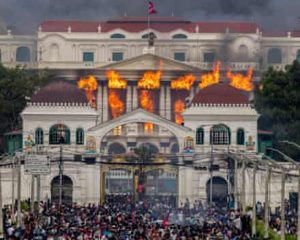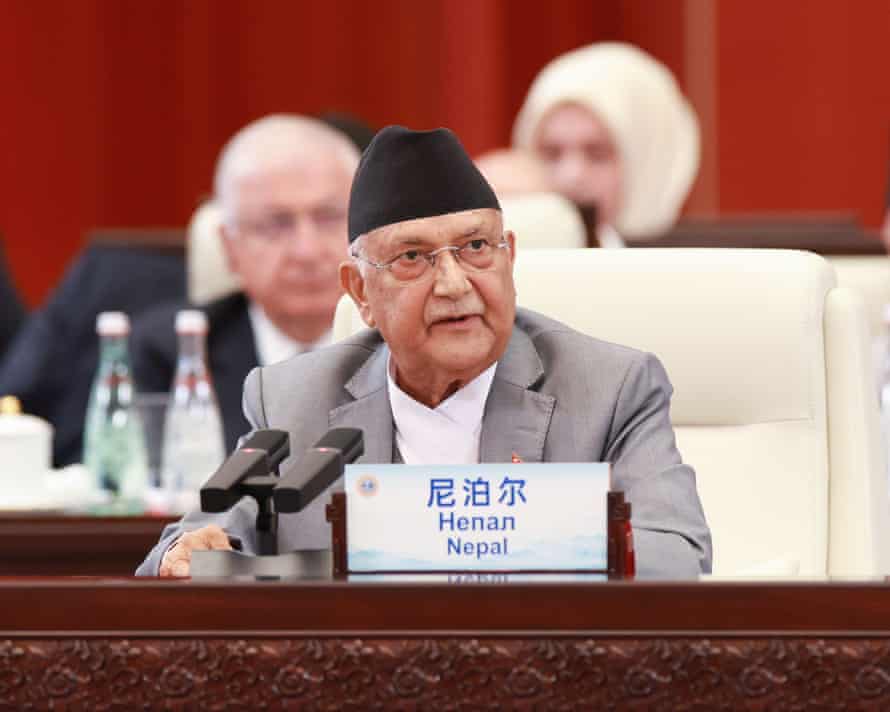Nepal’s Prime Minister, KP Sharma Oli, has resigned following some of the most severe unrest the country has witnessed in decades, triggered by a controversial ban on social media and mounting anger over political corruption and nepotism.
Oli’s departure came a day after nationwide demonstrations were met with lethal force by police, leaving 19 people dead and hundreds injured. The protests began in response to the government’s decision to block 26 major social media platforms, including Facebook, WhatsApp, YouTube and X, but quickly evolved into a broader movement against entrenched corruption among the political elite.
Although the ban was lifted on Monday night, the concession failed to quell public anger. Thousands of predominantly young demonstrators, calling themselves the “Gen Z” movement, defied curfews and took to the streets again on Tuesday. In Kathmandu, protesters stormed the federal parliament building and set it ablaze, while fires burned across the capital, filling the air with thick black smoke. Riot police came under a barrage of stones, and political leaders were evacuated to secure locations. Kathmandu airport was closed as unrest spread.
As calls for Oli’s resignation intensified, his private residence was set on fire. The homes of the president and several senior ministers were also attacked, and protesters seized control of Singha Durbar, the country’s main administrative complex.

By early Tuesday afternoon, Oli, 73, had submitted his resignation to President Ram Chandra Paudel, prompting celebrations among crowds gathered outside the parliament. The home minister had stepped down the previous evening in response to the killings. President Paudel has since invited leaders of the Gen Z protests for talks.
Rohan Ansari, 20, who said he witnessed a friend being shot dead by police on Monday, declared the resignation a victory. “Now, his soul will rest in peace. From now on, the work will be led by the youth. The files of their corruption will be exposed,” he said, standing outside the smoke-filled parliament building.
Oli, a veteran of Nepali politics, began his fourth term last year after his Communist Party formed a coalition with the centre-left Nepali Congress. In his resignation letter, he stated that he was stepping down to “facilitate a solution to the problem and help resolve it politically”.
Public dissatisfaction, particularly among younger generations, has been fuelled by years of political instability, slow economic growth and widespread unemployment, forcing many Nepalis to seek work abroad. Anger has been further stoked by a series of high-profile corruption scandals involving senior politicians, and by social media images showing the lavish lifestyles of their children, in stark contrast to the economic hardship faced by ordinary citizens.
Naresh Rawal, 27, said the protests were the only way to bring about change. “Corruption has gone so far that leaders have accumulated Land Rovers, bullets and millions of rupees in their homes. They don’t drink regular water, they have cartons of imported water. Where does all that luxury come from? Where did their children get money for lavish trips every month? This is why this was necessary action. Now the country can move forward on the path of reform.”
Tanuja Pandey, 24, called for Oli and his ministers to face criminal investigation over the killings. “This is not just the death of 19 youths, it is murder. The government’s hands are stained with blood. The government cannot escape accountability this time,” she said.



